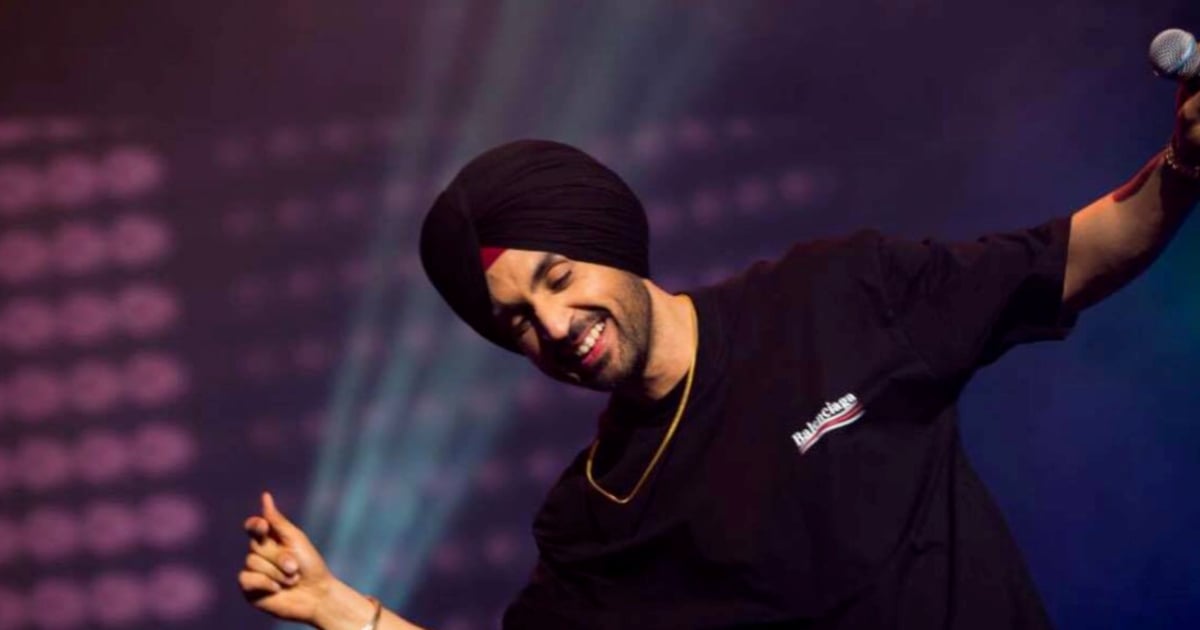MUMBAI: Arooj Aftab made history in 2022 when she became the first Pakistani Grammy winner, taking home the Global Music Performance Award for her song “Mohabbat.”
A year later, actor and singer Diljit Dosanjh stepped onto the smoke-filled stage of the Coachella Valley Music and Arts Festival in Southern California, becoming the festival’s first artiste from the Indian state of Punjab, as reported by the South China Morning Post yesterday.
In August, the first-generation Indian-American artiste Avara performed the opening show of her first tour, sitting in a bed of rose petals at a Brooklyn concert hall in New York.
Fans gathered near the stage for a glimpse of the artiste, who has seen a massive surge in popularity: she has gained over 250,000 new monthly Spotify listeners since November 2024—a more than 250 per cent increase.
“I started getting a bunch of her TikToks,” said audience member Alex Kim, a 22-year-old music assistant.
“Everyone has a short attention span these days, but I was like, ‘Wait a minute, I actually really like this.'”
Following in the footsteps of Afrobeat, K-pop, and Latin music, songs with South Asian influences are the latest global trend.
In April, Warner Music Group launched 5 Junction Records, a label dedicated to marketing South Asian-influenced artists to North American listeners.
“It’s something that’s been forming slowly,” said Billboard CEO Mike Van about the overseas surge of South Asian-influenced artistes.
“We started to see these growth spurts over the last couple of years because of all the technology, evolving tastes, and activation of these diaspora audiences.”
The general manager of 5 Junction Records, Juergen Grebner, said that his label looks for artistes with strong fan bases in their home countries.
He noted that a No.1 song in India “automatically will chart in the Top 20 on Spotify’s global charts.”
Born to Moroccan parents in Toronto, Canada, actress-turned-singer Nora Fatehi performed at the FIFA World Cup 2022, with billions worldwide watching the closing ceremony in Qatar.
She had been encouraged by a Toronto talent agency to explore opportunities in India, where she moved 11 years ago.
Determined to make a name for herself, she learned Hindi and began auditioning for every modelling and acting role she could find.
“The Indian audience is the reason why I am what I am today. So while I’m making myself into a global artiste, I’m bringing them with me,” Fatehi said.
In the multibillion-dollar global music business, musicians often need to collaborate with local artistes or brands to expand beyond their popularity at home, according to Grebner.
“The only way really to win in those markets is to collaborate,” he said.
Fatehi’s single “Snake,” which features US pop and R&B singer Jason Derulo, reached the top 20 on the Spotify charts in both the UK and Canada.
As the US becomes increasingly diverse, Mike Van said it has been encouraging to see younger audiences showing an “overall acceptance of global sounds.”
“Artistes have a direct connection now to their fans. You’ve got clips now, literally edited down to 10 seconds or less, that are capturing people’s attention that can go viral.”
Avara gained a social media following by posting videos that blend her meditative R&B and soul music with elements of her years of Indian classical and Western vocal training.
“I was around a lot of white people and people that didn’t look like me, and I rejected a lot of parts of myself,” she said.
Her debut album, a softer place to land, honoured the artistic community that shaped her over the past two years.
Her next project, Mara, she said, is about reclaiming her identity as someone who grows up balancing their parents’ heritage with the cultures they are raised in.
© New Straits Times Press (M) Bhd






